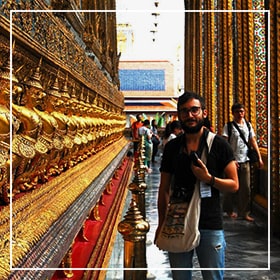The theme of “living fictions” comes from a presentation I gave at a recent meeting of the EASA Anthropology of Law and Rights network and builds on its participants’ very insightful comments[1]. The theme has been further developed through a reading group of Annelise Riles’ work on legal technicalities that the authors of this thematic week and I have decided to organise in preparation of our Allegra gig.
Fiction is here intended in both its technical sense of legal fiction – i.e. legal statements universally understood to be non-factual but which are nonetheless taken to be valid or useful (Riles 2005, 2010) – and also in the more anthropological register of technical systems of valuation (Latour and Bastide 1986).
In this latter, anthropological, sense we emphasize how these fictions can be seen as expert narratives and canonised schemes of appraisal (materialised in the form of text, accounting devices, and information systems). Using anthropological methods, we can see how these fictions allow social actors to perceive new connections and select specific patterns of relations, actions and their relative distribution of rights and obligations as metaphorical infrastructures (Ricoeur 1975; Elyachar 2010) through which ordinary life can be “run” and projects for its improvement can be envisioned. Where these infrastructures become sufficiently routinized, it may no longer be meaningful to even qualify them as “metaphorical” infrastructures.
Think of your (hypothetical) PhD in anthropology as exactly the kind of fiction we are talking about. Often materialised in a text-based support, your PhD is a bundle of institutionally backed assumptions, only partially based on demonstrable facts, that produces the irrefutable statement of your successful transformation into the type of legal person who meets the eligibility criteria for exercising the office of a “lecturer” in a higher education institution. In other words this means that you can now be potentially seen as someone who takes up the rights and obligations towards others constituting the social role of a lecturer in our societies. It is upon the fictionalized pattern of relationships, or social infrastructure, that we can then “run” that specific human project that any university ultimately is. Unsurprisingly, when it comes to human interactions, a lot of other stuff works like that. This week is a glimpse into how such fictions may become politically interesting to the Allegra reader.
Here we qualify fictions as “living” to bring into view the fact that such techniques of valuation are prone to be taken up by social actors in often unexpected and unintended directions.
Moreover, insofar as fictions are purposive schemas through which we construct meaning and perform order, they are also alive in another important sense: we invest intellectually and emotionally in them. In fact, living fictions are not at all unconscious: we more or less collectively decide to adopt such fictions because we believe they afford something to us; they solve ethical challenges for us, and organise our life. They improve and enhance our collective experience of being together in ordered and meaningful ways.
These types of living fictions achieve many things. They can be endearing, as when we give a legal-medical definition of brain death that allows people to retain hope in and affections for inanimate bodies (Lock 2002). They can be relieving as when we work around bureaucratic fictions so as to make sure that our ethical image of ourselves and our inconsequential projects can be kept alive regardless of their plausibility/effectiveness. For instance, any well-meaning politician will pride herself on protecting the interests of her constituency by virtue of having been elected, regardless of whether categories such as constituency or interests have any factual and consistent underpinning in real life. Fictions may even be enchanting, as when technical mastery over legal, fiscal or scientific knowledge is thought instrumental in the delivery of social change. Andrea Ballestero’s recent paper on Costa Rican regulators’ brainy devotion towards processes of technical valuations of the country’s price of water is a good example of this form of enchantment (2015). But fictions can also be enraging, as when we are allowed to disregard other people’s demands/needs because we selectively put “technical” limits to the boundaries of our individual responsibility to and emotional labour for others, thus causing the subject of such self-justifying acts of dismissal to feel abandoned or rejected. Think of welfare bureaucrats who need to fictionalise their destitute recipients as legally non-conforming social parasites in order to lessen the emotional burden attached to the experience of catering to marginality (Dubois 2010).
Above all, the fictions we live by maintain a non-heuristic relation with truth. They are not used to discover or describe social facts, but contrived to make some of them happen. In an important sense, they can’t be invalidated, nor rebutted. They are irrefutable.
In this thematic week, we move from these premises to explore how living fictions are deployed across many different fieldsites in an effort to uncover their political life and the processes of elite capture and technocratic governance that hinge upon their propagation and iteration. Taken together, the overarching point we would like to make with these interventions is that while fictions may in fact be integral to projects of human interdependence and to long term solidarity across generational and class divides, they are also prone to hijacking by technocratic and marginalising regimes of governance that disqualify alternative patterns of responsibilities while promoting pacified visions of social order and citizenship that further entrench inequality. Insofar as we collectively consider them to be useful and irrefutable means of organisation, such fictions are indeed difficult (but not impossible) to counter.
On Tuesday, Geoffrey Hughes will look at an emerging legal fiction in Jordan: “Divorce before Consummation.” The story of divorce before consummation exemplifies how the information infrastructure of Jordan’s government Sharia courts can produce new forms of individual and collective voice, subverting dominant gender roles and age hierarchies. These procedures sit uneasily with an alternative legal code that figures matters of birth, marriage, and death not as the prerogative of individual subjects but rather as part and parcel of ongoing exchanges amongst agnatic kin groups. Focusing on the courts’ promulgation of this novel legal category—a category itself predicated on the existence of the courts as an alternative legal system to “traditional” law—we see how its legal fictions not only produce the grounds upon which these agnatic kin groupings can be challenged but also produce the grounds upon which the courts themselves and the government they represent can be criticized.
Agustin Diz’s Wednesday post considers the legal fiction of corporate legal personhood as it plays out in an indigenous context in Argentina. There we will explore the ways in which indigenous leaders, negotiate, confirm and undermine the corporate veil as they attempt to establish legally and administratively defined Indigenous Communities. In this case, we see how the imposition of a legal fiction allows Guaraní leaders to engage in an unexpected political tactic that involves the reproduction of the corporate person through documents. Although this is an unintended consequence of the legal recognition of indigenous settlements, it is argued that this is the kind of phenomena that anthropologists are particularly well suited to investigate in contexts where fictions are lived in the everyday.
On Thursday, Andrea Pia will look at the Chinese Communist Party’s efforts to fix the widely popularised governmental fiction of the so called “harmonious society” and its ideal inhabitant, the “civilised citizen”, through a crafty rearticulation of the means of law. Here I will show that the process of thinking of legal techniques as means to re-establish party-sanctioned ethical living in the unruly Chinese countryside draws directly from (Chinese) legal anthropology. It operates to refashion opposition from one constituted of valid counterclaims to one that lacks a particular kind of legal tuition. Interestingly, pedagogical powers are ascribed to the process of schooling citizens in the ethical boundaries and inner workings of the law. Here I will also argue that a version of this theoretical position is currently haunting recent works in western legal anthropology, and that we should move to bring back into the ethnographic gaze what lies outside of legally encoded fictions of government.
Finally, Fridays is a snapshot from Andrea’s ethnographic work in China where a video game on border control shows to be a reservoir of interesting facts and considerations about living fictions in the abstract and those governing Chinese migration. This thematic week will further spill over to May 13th. Then, Giulia Zoccatelli will explore how the creation of new legal fictions — as the one that reified the legal persona of the drug user in China and made it instrumental to the public health management of epidemics — can become conducive of enduring forms of everyday violence and social marginalisation.
References Cited
Elyachar, Julia, 2010. Phatic labor, infrastructure, and the question of empowerment in Cairo. American Ethnologist 37(3): 452–464.
Ballestero, Andrea. 2015. The Ethics of a Formula: Calculating a financial-humanitarian price of water. American Ethnologist 42 (2): 262-278.
Dubois, Vincent. 2010. La vie au guichet. Relation administrative et traitement de la misère. Economica: Paris.
Latour, Bruno, and Françoise Bastide. 1986. Writing science: Fact and fiction. In Mapping the dynamics of science and technology, edited by Michel Callon, John Law, and Arie Rip, 51-68. London : Macmillan.
Lock, Margaret. 2002. Twice Dead: Organ Transplants and the Reinvention of Death. California University Press: Berkeley and Los Angeles.
Ricœur, Paul. 1975. La métaphore Vive. Paris: Le Seuil.
Riles, Annelise, 2005. Riles, Annelise, A New Agenda for the Cultural Study of Law: Taking on the Technicalities. Cornell Law Faculty Publications. Paper 782.
— 2010. Is the Law Hopeful? Cornell Law Faculty Working Papers. Paper 68.
[1] I would like to thank all the participants to the workshop ‘Legal anthropology in Europe at a Crossroad’ organised by the EASA Anthropology of Law and Rights in Edinburgh the past January. I especially want to thank Tobias Kelly, Miia Halme-Tuomisaari, Isabelle Schulte-Tenckhoff and Gerhard Anders for their invaluable comments on my draft paper.






